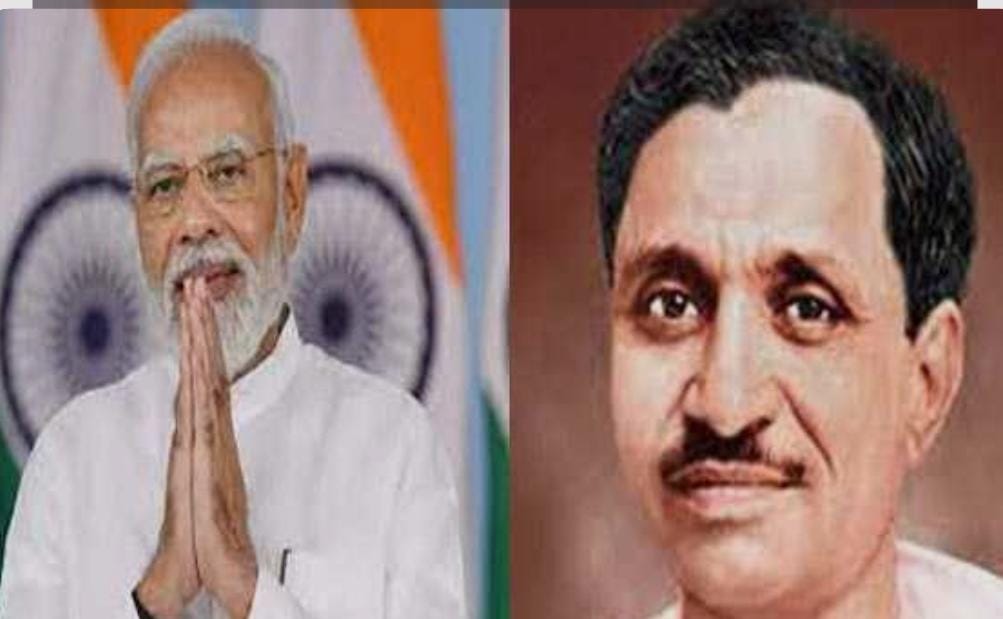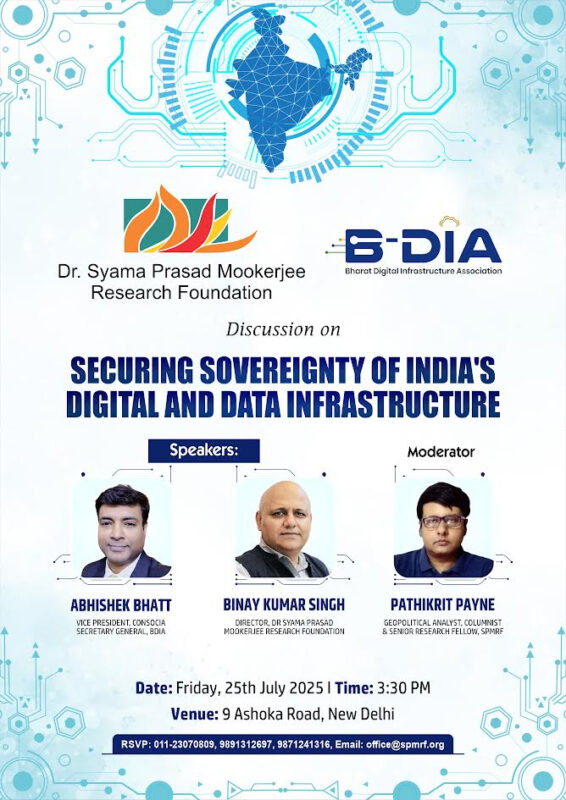Pandit Deendayal Upadhyaya propounded Ekatm Manav Darshan, or Integral Humanism, in 1965, emphasising a developmental model growing out from Bharatiya values that centered around the individual, society, and the nation. He rejected both Western capitalism and communism, proposing instead a framework that harmonises material needs with spiritual purpose. For him, Bharat was not just a construct of race, religion, or territory, but a civilisational continuity shaped by shared traditions and values. To reflect on this transformational philosophy and how it shaped the current government policies, a two-day seminar and high-tech exhibition were organised in New Delhi to mark the 60th anniversary of the Integral Humanism lectures. Six decades later, this vision continues to inspire Bharat’s policy thinking and public discourse.
What made this event distinct was not just the intellectual depth of the lectures delivered by prominent leaders and thinkers, but the accompanying high technology led exhibition. Each exhibit demonstrated how integral humanism has been to the Modi government’s policies from Jan Dhan Yojana to Operation Sindhoor. The utilisation of modern technology such as anamorphic 3D visuals, sliding LEDs, motion sensor quizzes, and interactive installations has given a rich visual experience and made the philosophy accessible to all, particularly among students and the youth. The event was not just a commemoration but a demonstration of how the philosophy, Integral Humanism, is shaping today’s governance model, in a digital first approach. The program was attended by cabinet ministers, thinkers, BJP leaders and youth from across the country.
This philosophical vision has not remained confined to academic discourse. It has directly influenced Bharat’s key development programmes over the past decade. Ekatm Manav Darshan suggests that nation does possess a soul too, called as Chiti, just as an individual does. He believed that Bharat’s soul resided in its villages, and the rural populace truly represents the ‘Chiti’. Holistic development of villages is crucial for the progress of the country. Translating the ideals into action, The Modi government has electrified around 2.9 crore rural homes under Pandit Deendayal Upadhyaya Gram Jyoti Yojana. Through Ujjwala Yojana, more than 10 crore LPG connections have freed rural homes from smoke-filled kitchens, reclaiming health, dignity, and the sacred breath of life for millions of women.
Antyodaya is a core principle of Integral Humanism that states true development happens only when the benefit of the progress reaches the poorest individual and the disadvantaged. He quoted that ‘the test of any policy is what it does for the man standing last in the line.’ Building on this vision, Antyodaya shaped the foundation of many of today’s welfare and development policies that aim to restore dignity through inclusion, not dependence. From financial empowerment through Jan Dhan accounts to health assurance under Ayushman Bharat, and from PM Kisan Samman Nidhi to Housing for all, the guiding thought has remained the same, enabling every individual to rise with self-respect and opportunity.
This inward strength, drawn from civilisational confidence, also shapes Bharat’s approach to the world. Pandit Deendayal Upadhyaya believed that foreign policy should be driven by national interest which comes from the core identity of the nation. This principle has been reflected broadly in the Modi government’s approach over the last 11 years. When the world needs a friend, Bharat delivered 25 crore vaccine doses to over 100 nations, extended earthquake relief to Turkiye and Syria under Operation Dost, and evacuated citizens from war zones under Operation Ganga. Pandit Deendayal Upadhyaya proclaimed, ‘A nation can only be powerful when its armed forces are capable’, a vision in line with self-reliance, unity, and discipline. Initiatives such as Make in India and the establishment of Defence Industrial Corridors have led to a staggering 65% rise in defence production capacity, and the development of indigenous powerhouses such as Brahmos, INS Vikrant, HAL Tejas. Military operations such as the Uri surgical strikes, Balakot airstrikes, and Operation Sindhoor have not only displayed country’s military precision but also sent a clear message of Bharat’s zero tolerance on terrorism.
Amidst the rapidly changing globalisation trends and global powers adopting the defensive market policies, achieving the self-sufficiency of the economy is a prudent approach. On the same avenues, Pandit Deendayal Upadhyaya stressed on the adoption of Swadeshi, an economic ideology that goes beyond only boycotting foreign goods. It is also a way of thinking that is based on self-respect, decentralisation, and cultural identity. This vision became a reality with the initiatives such as Vocal for Local, Atmanirbhar Bharat, and Make in India campaigns. Supporting MSMEs, incentives for startups, backing Khadi, and digital platforms such as UPI show a transcendental shift towards self-sufficiency based on national goals. These initiatives blend modern technology with traditional values to create a strong, human-centered economy.
Together, these policies reflect a deeper ideological thread that ties governance, growth, and global diplomacy to a human-centric philosophy. This continuity of thought, from village upliftment to global diplomacy, provides a value driven world which find light in the philosophy of Integral Humanism. As the world order struggles with fragmentation, marked by a lack of trust in multilateral forums, economic changes, and new security nuances, Bharat stands out as a rising power that has a rapidly growing economy amalgamated with civilisational values and cultural grit. In such a divided world, Ekatm Manav Darshan, as formulated by Pandit Deendayal Upadhyaya, reminds us that true progress begins by placing the human at the center, guided by duty, compassion, and a balanced relationship between the individual and the nation.
(The views expressed are the author's own and do not necessarily reflect the position of the organisation)


